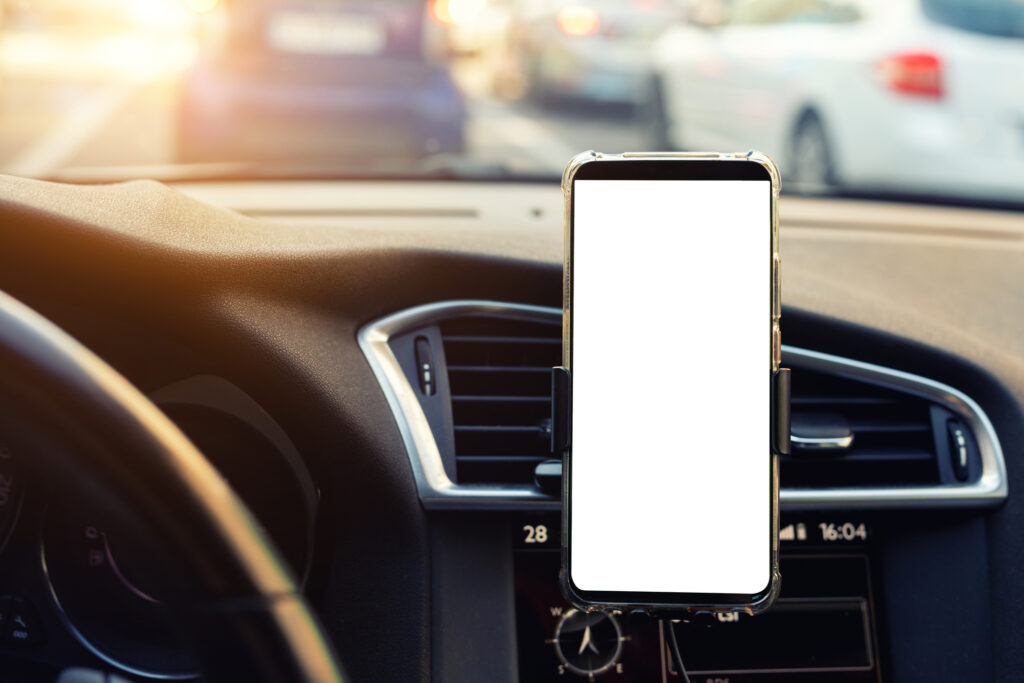Published June 25, 2025
Laws banning the use of handheld phones while driving are an important layer of protection against distracted driving. Like laws requiring seat belt use and prohibiting drunken driving, hands-free laws keep drivers, passengers, and everyone on the roadway safer.
Starting July 1, 2025, drivers in Iowa will be prohibited from using their phones or other electronic devices to make calls or use GPS navigation – unless they are in hands-free or voice-activated mode. Texting while driving is already illegal in Iowa.
Law enforcement will begin educating the public with warnings starting July 1, and penalties will take effect January 1, 2026. Violators will be fined $100 and charged with a simple misdemeanor. Higher penalties will apply if the violation results in injury or death.

Iowa is the 31st state to enact hands-free legislation, joining neighboring states like Minnesota, Illinois, and Missouri.
“Passage of the hands-free law is a fundamental leap forward for public safety in our state,” said Luke Hoffman, executive director of Iowa Bicycle Coalition, which worked for seven years to get a hands-free law passed.
To implement the new law, the Governor’s Traffic Safety Bureau (GTSB), will use a three-pronged approach of public awareness, education, and high-visibility enforcement.
Brett Tjepkes, bureau chief at GTSB said, “We will employ statewide education and beginning on July 1, there will be increased law enforcement efforts to deter drivers from engaging in distracting behaviors, particularly cell phone use and texting.”
Texting includes reading, writing, and sending electronic messages. In 2010, Iowa banned texting while driving. In 2017, it became a primary offense, meaning police officers could pull someone over solely for this violation. However, police officers found the law difficult to enforce.
The newly expanded hands-free law addresses this challenge by allowing officers to take action whenever a driver is holding a phone, without needing to determine the specific activity. Before the expanded law, it was hard to know if the driver was reading a text message, making a call, or setting up navigation.
In addition to news releases and media announcements, GTSB will disseminate educational materials for law enforcement to share with their communities and help drivers understand how to comply with the law.
Tjepkes said, “While there’s been considerable news coverage about hands-free legislation over the last several years, we’re cognizant not all drivers in Iowa will know it was passed into law.”

Protecting the most vulnerable on the roads
The percentage of U.S. fatalities among people outside of vehicles, including pedestrians, bicyclists, and motorcyclists, has risen from 20% in 1996 to 36% in 2022.
Hoffman said, “The law will make cyclists and pedestrians safer by tamping down on distracted driving, which is a primary cause of incidents where cyclists are hit and killed on our roadways.”
In addition, he said, if bicyclists get hit by a driver using a handheld phone, there is now a much stronger framework in place to provide legal recourse for victims.
“Also, the law more broadly protects everyone on our shared roadways since the vast majority of distracted driving incidents involve driver-on-driver crashes,” Hoffman said.
In Iowa, there were 123 deaths and over 8,000 injuries (1,142 serious) caused by distracted driving from 2019- 2023. Distracted driving is common and underreported: 88,715 vehicles were involved in crashes caused by distracted driving/ inattentiveness in Iowa during this time, affecting 118,499 people.
What is hands-free?
As defined by Iowa law, ’voice-activated’ or ‘hands-free mode’ means “an attachment, accessory, application, wireless connection, or built-in feature of an electronic device or motor vehicle that allows a person to use verbal commands or a single touch to activate or deactivate the device or a function or software application of the device.”
Tips for going hands-free:
- Plan ahead: Set your GPS route and music playlist before you start driving.
- Secure your phone: Store your phone in a bag or glove compartment to keep it out of reach and sight.
- Avoid video distractions: Never engage in video calls or watch videos while driving.
- Ignore or turn off notifications: Don’t read texts, emails, or app alerts while on the road.
- Stay hands-free at stops: Avoid phone use even when stopped at traffic lights or in traffic.
- Let a passenger help: If you’re not alone, ask a passenger to manage your phone tasks.
- Pull over safely: If you must use your phone, pull over to a safe location and come to a complete stop first.
- Be a responsible passenger: If you’re riding along, discourage the driver from using their phone and offer to assist if needed.
Legal exceptions:
The hands-free law does not apply in emergency situations—for instance, when receiving safety-related information, weather alerts, or when reporting an emergency.
Certain professionals do not need to comply with the hands-free law while performing their professional duties including, police officers, emergency responders, and those operating agricultural equipment, such as tractors or combines.
The End Distracted Driving Iowa Coalition
To advocate for a hands-free law, the Iowa Bicycle Coalition joined with the End Distracted Driving Iowa Coalition, representing 30 labor, governmental, and grassroots organizations, as well as businesses.
“Fundamentally, it took persistence, resilience, and working to build real relationships and champions, and always showing up when there was an opportunity to make our voices heard,” Hoffman said.
He said the coalition had to refine its message and boil it down to the most basic premise – saving lives.
“While the stories are tragic, it’s a message of hope for a future where we can build a better world that is safer for all Iowans,” Hoffman said.
Some resources
Preventing distracted driving in Iowa: Hands-free laws (UI IPRC policy brief)
Distracted driving risk factors (CDC)
Find hands-free tips at the Media Center (Iowa Governor’s Traffic Safety Bureau)